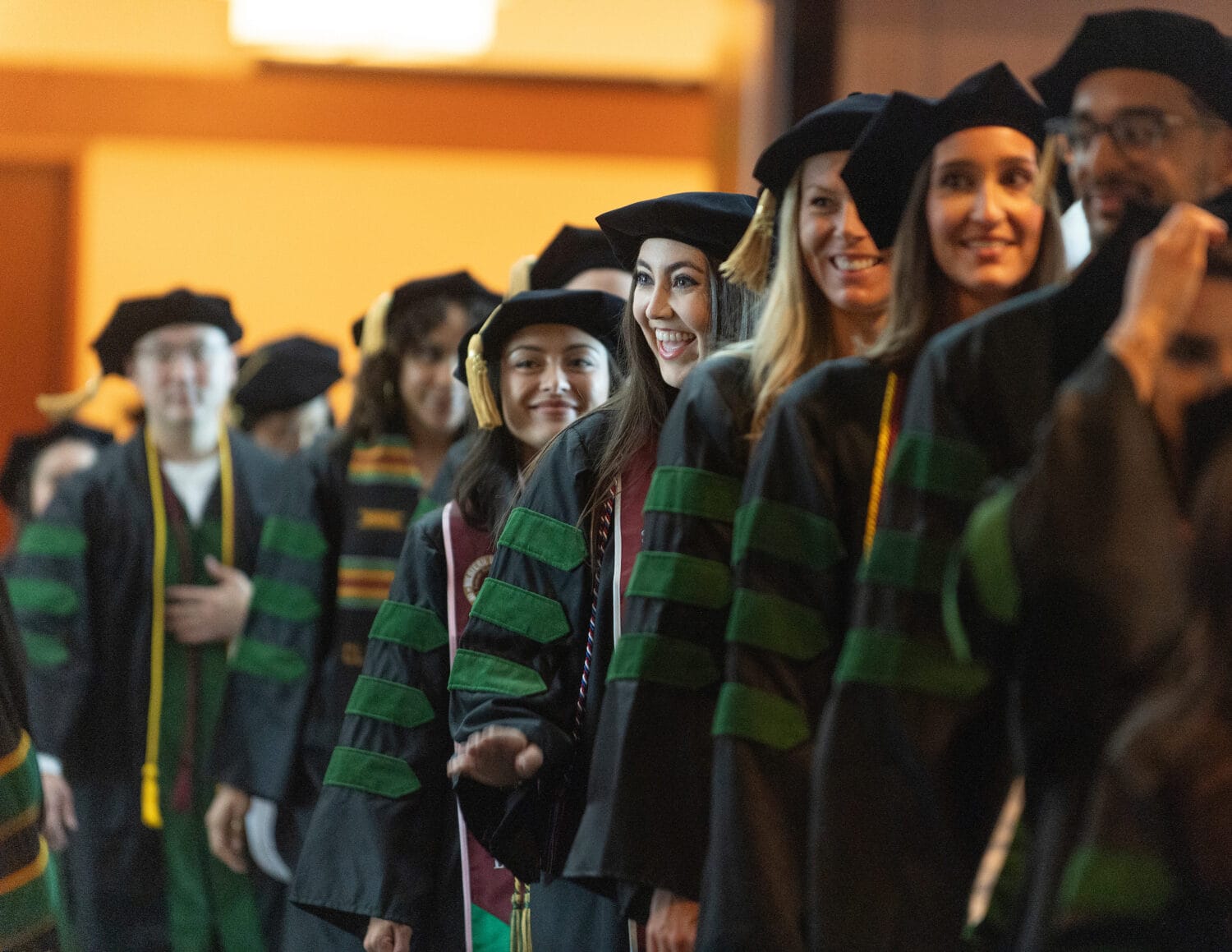WesternU Professor Helps in Haiti
Western University of Health Sciences Assistant Professor Vicki Wedel, PhD, embarked on an important mission to identify and repatriate Americans killed in the Haitian earthquake.
Wedel is a member of the Disaster Mortuary Operational Response Team (DMORT), part of the National Disaster Medical System under the U.S. Department of Health and Human Services’ Office of the Assistant Secretary for Preparedness and Response.
She arrived in Port-au-Prince on March 8. A magnitude 7.0 earthquake struck the city on Jan. 12, 2010.
“A few things were going back to normal,” Wedel said. “Street vendors were selling breathtaking art. People were selling sugar cane by the stalk, and secondhand clothing and shoes.”
On any given street, you might see a house standing next to another structure reduced to a pile of rubble. Most of the city is on a steep hill, and a lot of rubble from houses tumbled to lower levels, Wedel said.
One of the main areas of focus for the recovery team was the heavily damaged Hotel Montana, an upscale resort in Port-Au-Prince where many Americans were believed to have been staying at the time of the earthquake.
Wedel visited the hotel, but she was not part of the search and recovery teams. She was made Section Chief of Forensic Anthropology and stationed at DMORT’s morgue, which was set up at the Port-au-Prince airport.
Remains brought to the morgue were examined, and DNA, fingerprints and X-rays were collected along with personal effects. Wedel examined the remains to determine age, sex, stature and ancestry, which helped in the identification process.
“We tried to hold ourselves to the same standards in identification in the States,” Wedel said. “We wanted to make sure the possessions they had when they died remained with them, that the cause and manner of death were documented, and that their ID (was) positive.”
She and her colleagues worked as an integrated unit, receiving vital information from DMORT’s Family Assistance Center Team (FACT), Wedel said. FACT collects medical records, hair color, information about personal effects and more in an extensive survey of families of the deceased or people believed to be deceased.
DMORT members respond as intermittent federal employees, organized into 10 geographic regions. Wedel is a member of Region IX, which consists of California, Arizona, Nevada, Hawaii, Guam, American Samoa and the Commonwealth of Northern Mariana Islands.
These professionals can include medical examiners, coroners, pathologists, forensic anthropologists, funeral directors, medical record technicians and transcribers, fingerprint specialists, forensic odontologists, dental assistants, X-ray technicians, mental health specialists, computer professionals, and administrative support staff, as well as security and investigative personnel.
“In general, for this mission we used more anthropology on a daily basis than any other of the forensic sciences,” said John B. Linstrom, MIFireE, ACFEI, U.S. Department of Health & Human Services Commander, DMORT Region IX. “Many of these remains were still entombed in some of the collapsed buildings. We probably had a higher level of staffing for forensic anthropologists than any mission in the last 15 years. The success of the mission absolutely was due in part to the work of our anthropologists.”
In a standard response, DMORT deploys 35 members for 14 days, then sends in another team of 35, with some overlapping days so the new team can be brought up to speed.
“Our mission was very narrow – recover, identify and return the remains of American citizens,” Linstrom said. “We wanted to recover all remains of the deceased with dignity and respect.”
DMORT recovered 121 American citizens, and 119 have been scientifically confirmed and identified, Linstrom said.
“I’m proud of the job DMORT did and does every time we’re deployed, that we help families when something catastrophic has happened,” Wedel said. “By the same token, I’m proud of what we did to help Americans who died in Haiti.
“But I feel powerless to have helped in a long-lasting way any of the Haitians. A lot of us left behind some of the things we took – clothing, shoes, toiletries. When DMORT demobilized, we left behind uneaten MREs (Meals Ready to Eat) and water, but those are such temporary things to give people who have so much rebuilding to do.”
Wedel only traveled outside the airport twice – to visit the Hotel Montana and the U.S. Embassy – because it required armed escorts. Driving through Port-au-Prince gave her an unforgettable view of the city’s devastation.
“More than a million people are living in tent cities at this point,” she said. “They’re not lit. They’re not adequately patrolled. One tent city I saw had 44,000 estimated living in it, with about 100 pit latrines. In the rains they would overflow.”
She saw work crews shoveling loads of rubble over their shoulders onto dump trucks. People trying to stay on their own property would take smaller pieces of rubble and fit them into the bricks that were still standing. They have no money for mortar, so there was nothing to bind the bricks and rubble together.
“There’s a lot of fear that with the rainy season, all temporary rebuilding will be demolished too,” Wedel said.
While driving through the city, she and her colleagues saw dozens of children who were either orphaned or sent by their parents into the street to beg in traffic, Wedel said. They would climb on the bumper of armored U.S. Embassy Suburbans and bang on the windows to say “cash” or “aid.”
No amount of “no thank you” or “get off” would deter them. The driver had to pull away, she said.
“The images that play like a movie reel in my mind are images of the living we left behind, struggling to survive,” Wedel said. “Where they will find their next bottle of water or their next meal, how safe they’ll be able to sleep at night, are huge question marks. Those are the things I think about when Haiti is really on my mind.”
Wedel returned to the U.S. on March 16. She had trouble going to sleep the first few nights back because she had become accustomed to the sounds of 13 diesel generators running at night, along with helicopters thrumming in the background.
About a week later, she repacked her uniform and prepared for future deployments. DMORT is always on call, and team members need to be ready to go on two hours warning.
“When I was called and asked to deploy, I called my parents. I made my mother cry. I had chosen to go help in a place so far away that does have a complicated political history,” Wedel said. “But I told her that if it were (her son) London who was missing, I would want heaven and earth moved to find him.
“Since I’m a member of a group that has skills useful in this kind of situation, it’s my obligation to go.”



